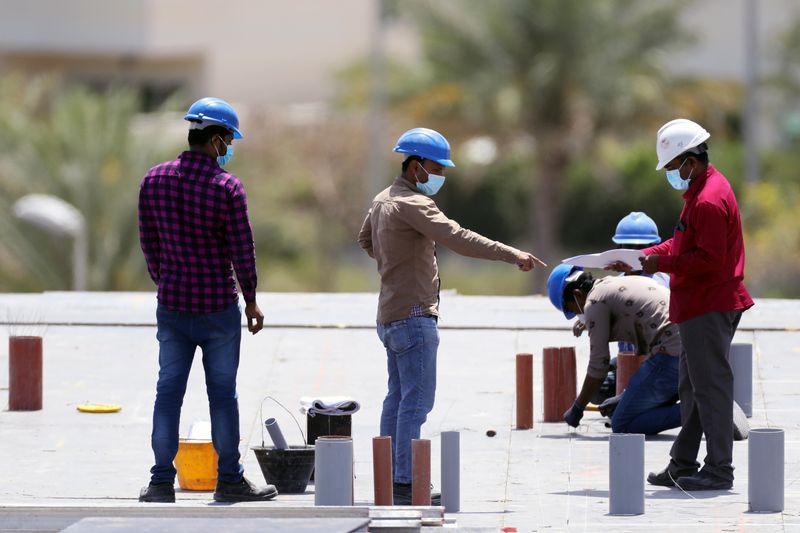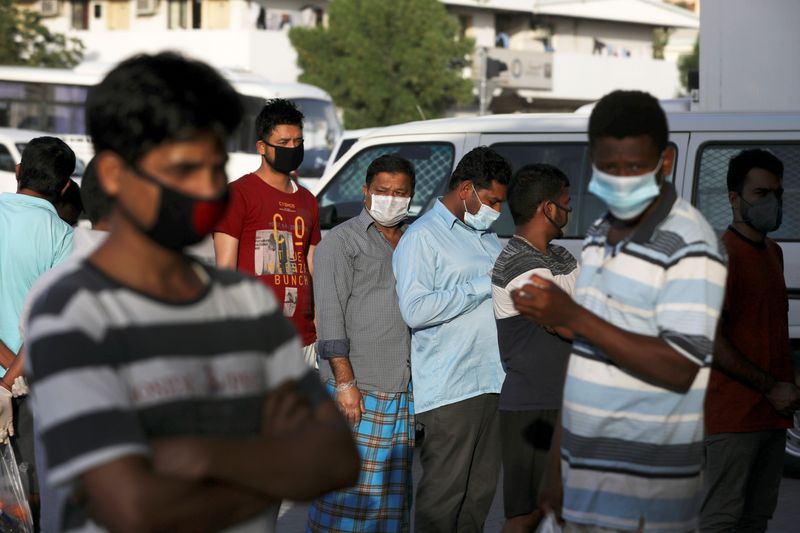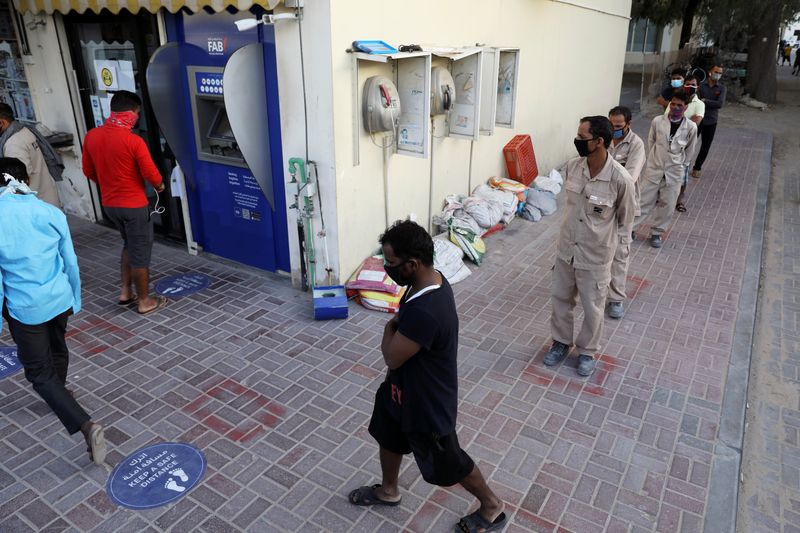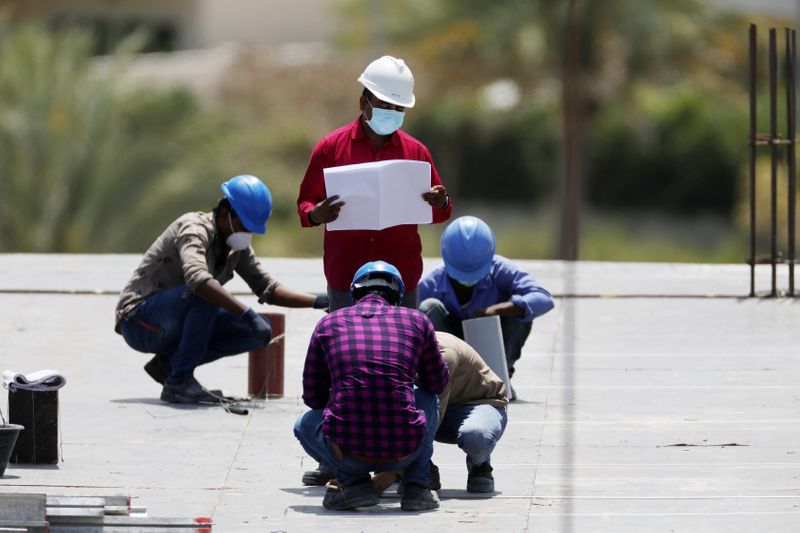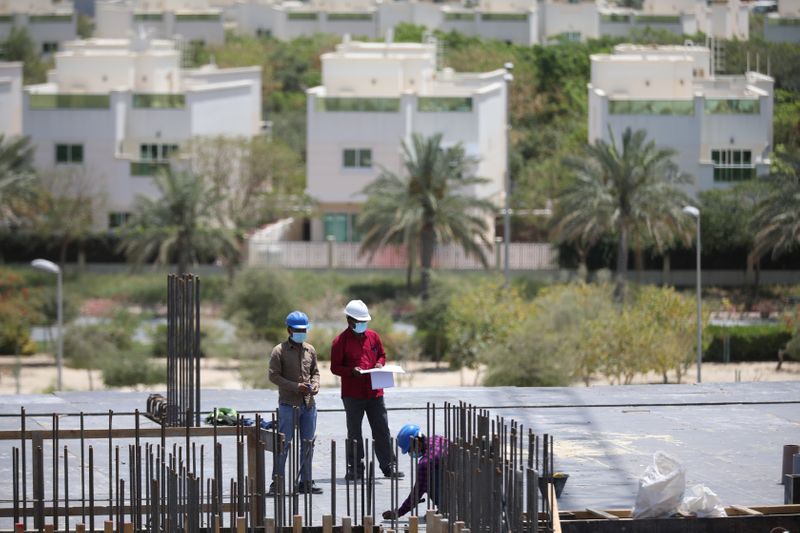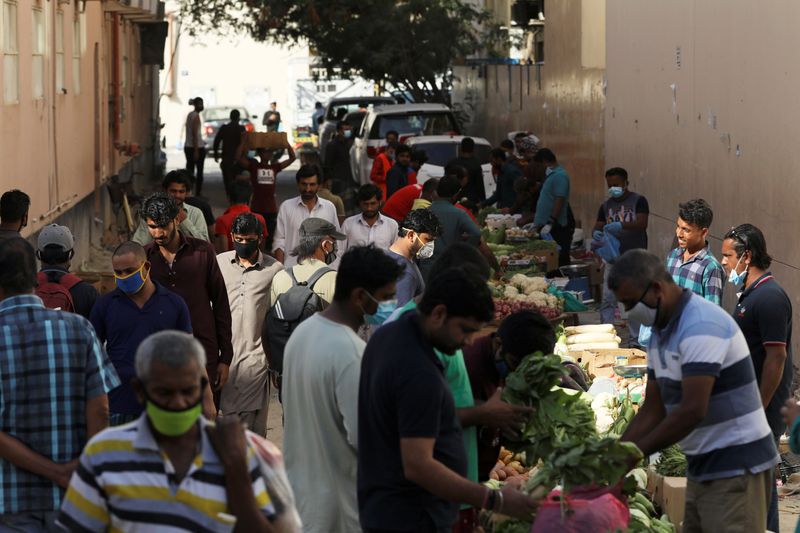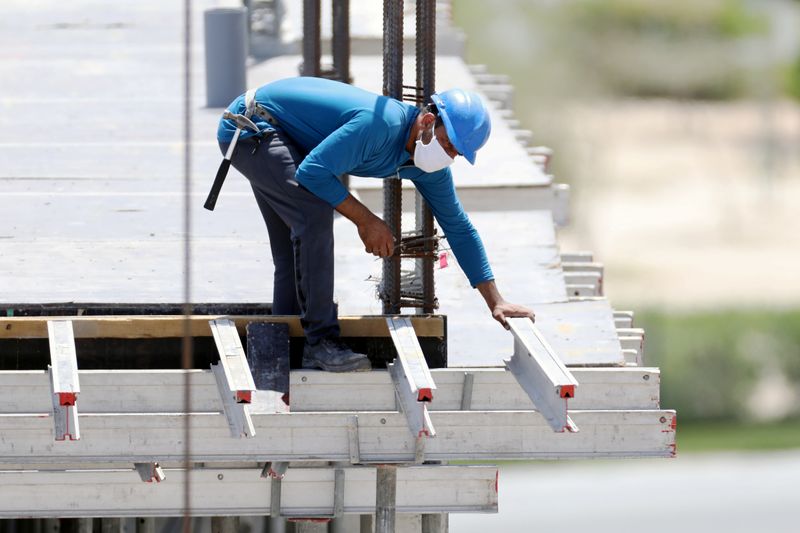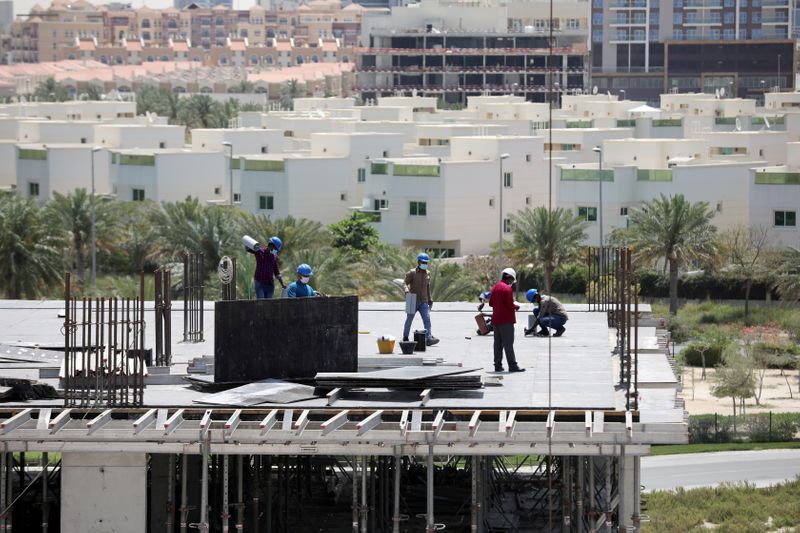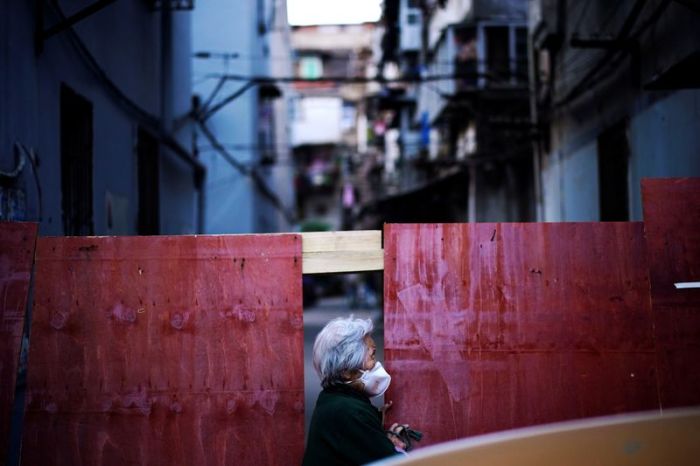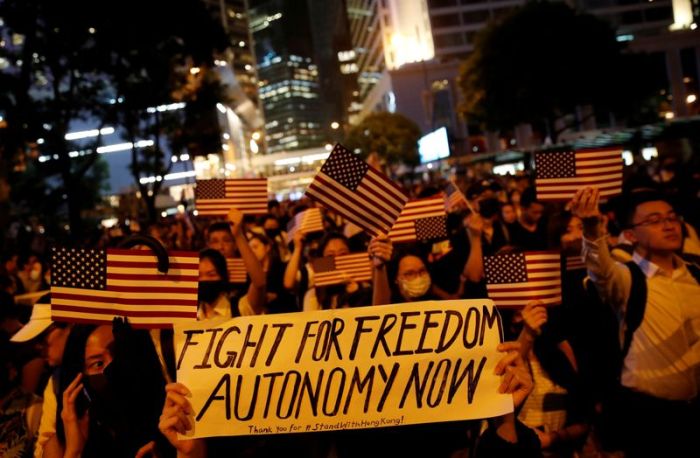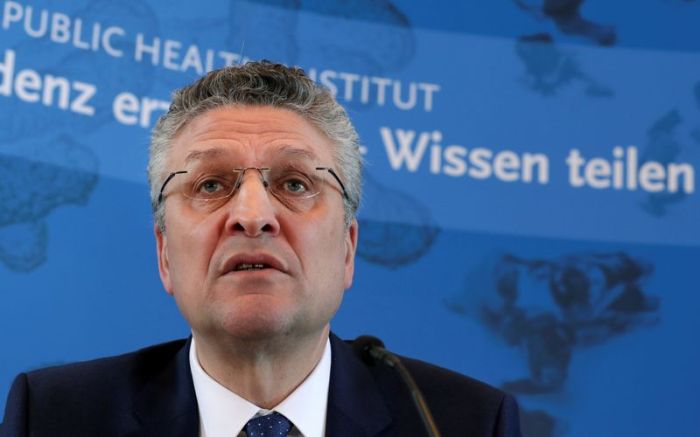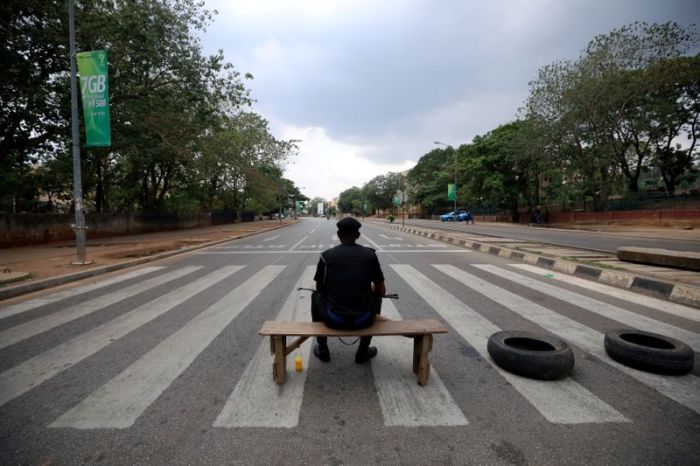DUBAI (Reuters) – Charity workers are scouring the United Arab Emirates for empty buildings and Bahrain is repurposing closed schools to rehouse low income labourers from overcrowded accommodation, a hotspot for the coronavirus outbreak in the Gulf.
The challenge is not limited to the region’s congested labour camps, where one room with bunk beds can sleep about a dozen workers, the virus has also spread in densely populated commercial districts where many expatriates share housing to save on rent. Many have lost jobs and are struggling.
Indian engineer Mohamed Aslam shares a three-bedroom apartment in the UAE capital Abu Dhabi with 14 other people. Health authorities put the building under quarantine after some residents tested positive for the virus.
“The charities are covering the food: dinner, lunch, breakfast,” he told Reuters. “Praise be to God, because of charity we are surviving.”
Aslam is among millions of foreign workers, many from Asia, who form the backbone of Gulf economies and work in the construction, hospitality, retail, transport and services sectors, many of which have been disrupted by the outbreak.
Most of the six Gulf Arab states have taken measures to curb the spread of infection, initially linked to travel, by suspending passenger flights, closing most public venues and imposing curfews. But the number of cases has steadily risen to surpass 16,500 with 111 deaths.
CONTAINMENT
Most Gulf states have said they face a challenge with migrant workers. Some, including the UAE’s Dubai emirate, Qatar, Oman and Kuwait, have locked down areas with a large population of low wage workers. All have stepped up testing.
In Saudi Arabia, a video widely circulated on social media showed at least 15 foreign workers being ushered out of one room with bunk beds to be tested for the virus. A Saudi official confirmed the authenticity of the video.
Gulf governments said they are sterilising labour camps as part of disinfection drives. Bahrain said it would use schools to separate workers. Two charity groups in the UAE said they were looking for empty buildings where workers could isolate.
“Many people are infected and are staying with other people,” Krishna Kumar, president of UAE-based Kerala Social Centre said. “We are trying to isolate them.”
Three doctors in the UAE, who spoke on condition of anonymity, said overcrowding is one of the biggest factors for the surge in cases. “We have seen clustered outbreaks in the labour camps,” one of them said.
Authorities in the UAE, which has the second largest number of coronavirus cases after much larger neighbour Saudi Arabia, did not respond to requests for comment.
Several Gulf Arab states have allowed outbound flights for expatriates who have lost jobs or been put on leave, but some countries say they are not prepared to take them back.
DESTITUTE
In the UAE, diplomats and four charities said they were delivering thousands of meals, medicine and other essentials each day to people who had become destitute.
Indian national Abdulla, who declined to give his last name, said he had not worked at his Abu Dhabi retail job for two weeks and was relying on charity. A Ugandan office assistant living in a labour camp in Dubai’s Jebel Ali, who declined to be named, said he had not been paid in weeks.
The UAE has said it would review labour ties with states refusing to repatriate citizens after the ambassadors of India and Pakistan said their countries were not yet ready to do so.
“We’re aware of all of those who have been laid off and their plight,” Sayed Zulfiqar Bukhari, special assistant to Pakistan’s prime minister, told Reuters in Islamabad.
“We’re just waiting to create the right mechanism so that we don’t overburden the system of taking people in here,” he said, adding airlines needed to be equipped for safety.
Bangladesh Expatriate Welfare and Overseas Employment Minister Imran Ahmed said Dhaka was working to alleviate citizens’ hardships, including sending money to foreign missions “so that migrants in trouble can be taken care of”.
A Philippines official said citizens overseas can qualify for a government stipend of $200.
Valerie, a Filipina receptionist in Dubai who shares a one-room studio with five others, had her wages cut and is digging into savings to support her parents and six siblings back home.
“I’m worried about my family if I lose my job,” she said, adding that she worries about going out to buy groceries. “It’s scary. We don’t know if we will bring back the virus with us.”
(This story has been refiled to correct grammatical error in paragraph 12)
(Reporting by Alexander Cornwell; Additional reporting by Marwa Rashad, Stephen Kalin, Lisa Barrington, Aziz El Yaakoubi, Waruna Karunatilake, Ruma Paul, Gibran Peshimam and Karen Lema; Editing by Ghaida Ghantous and Janet Lawrence)

